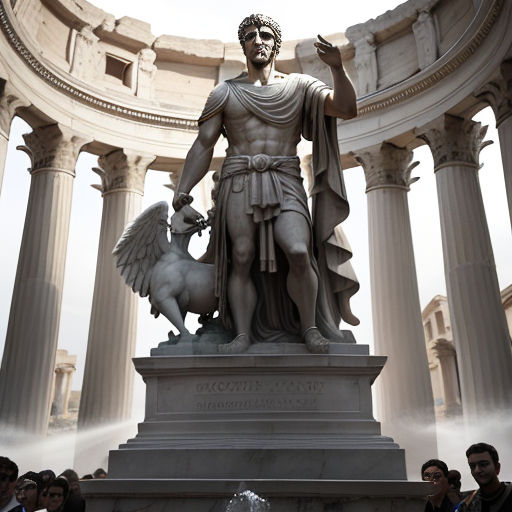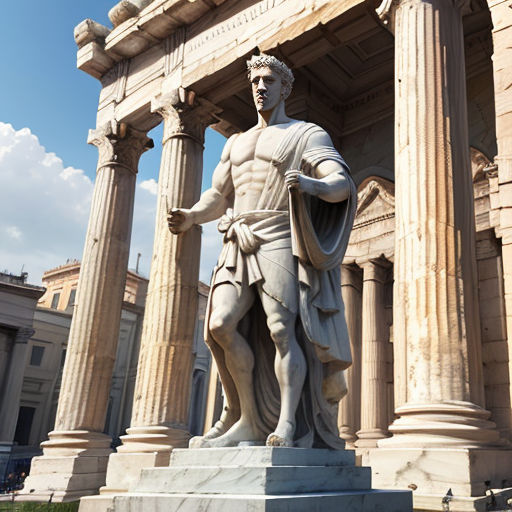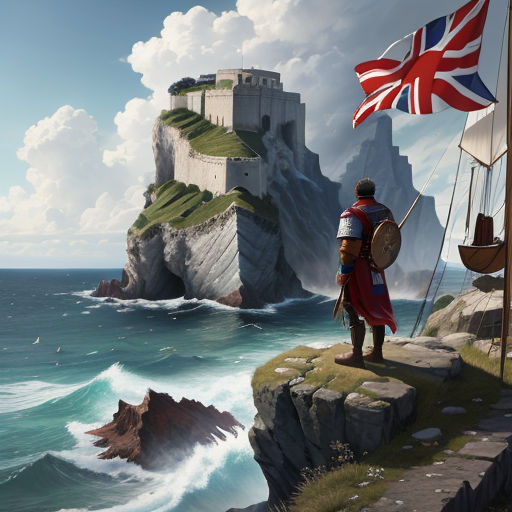
The Rise of Julius Caesar
By Terry

15 Sep, 2023

Gaius Julius Caesar was born on July 12 or 13, 100 BC, in Rome, Italy. He came from a family of noble lineage, but they were not rich by the standards of Roman nobility.

As a young boy, Caesar received an educated upbringing where he was trained in the art of war and learned the basics of Roman law and politics. His education shaped his future.

In his early career, Caesar showed a talent for political manipulation. He raised the popularity of Roman government through his remarkable leadership skills.

He was elected quaestor (financial officer) of the Roman province, Spain. In this position, he improved the province's economy and won the loyalty of its people.

Later, he became the governor of the Roman province, Further Spain. His successful governance showed his potential as a leader.

Caesar was a great speaker, his speeches were powerful and persuasive. He was known for his great oratory skills throughout Rome.

In 59 BC, Caesar became consul, the highest political office in the Roman Republic, sharing the position with Marcus Calpurnius Bibulus.

During his consulship, he initiated laws that were resistant but later praised for their effect in maintaining peace and order in Rome.

Caesar formed the First Triumvirate with Pompey and Crassus, which increased his power. This alliance dominated Roman politics for several years.

In 58 BC, Caesar's campaign began against the tribes in Gaul. These Gallic Wars lasted for nine years and expanded Rome's territory extensively.

He wrote about his military exploits in "Commentaries on the Gallic War". His detailed account of the wars gained him fame and respect in Rome.

After Gaul, Caesar set his sights on Britain. Though his invasions were not completely successful, they marked the first Roman contact with the island.

The Triumvirate fell apart after the death of Crassus. As a result, Caesar and Pompey, once allies, became rivals in a power struggle.

When ordered to return to Rome without his army, Caesar famously crossed the Rubicon River, sparking a civil war against Pompey and his supporters.

After several battles, Caesar emerged victorious. Pompey was assassinated in Egypt, and Caesar was declared dictator perpetuo, dictator in perpetuity.

As dictator, Caesar implemented a series of reforms. He restructured the Roman calendar, initiated land reform, and reorganized local governments.

He was loved by the people, but his increasing power sparked fear among the Roman senators, leading to growing tension.

Caesar's personal life was marked by several marriages and affairs. His most notable affair was with the Egyptian Queen Cleopatra, with whom he had a son.

Since Rome was a Republic, Caesar's dictatorial status did not sit well with many, especially those from the senatorial class.

On the Ides of March (March 15) in 44 BC, Caesar was assassinated by a group of senators led by Gaius Cassius Longinus and Marcus Junius Brutus.

His death led to the end of the Roman Republic and the rise of the Roman Empire, as his adopted heir Octavian, later known as Augustus, became the first Roman Emperor.

Caesar's military strategies, political reforms, and his efforts in strengthening Rome's power made him a pivotal figure in the shaping of the Roman Empire.

Even after his death, Caesar left a lasting legacy. His life and deeds have been studied and admired by generations, influencing numerous cultures and civilizations.

The name Caesar became synonymous with power, causing future Roman Emperors to adopt it as their title. Even today, it is a commonly used term for rulers in various languages.

Julius Caesar's life was a testament to his exceptional leadership skills, military prowess, and political acumen, making him one of history's most influential figures.